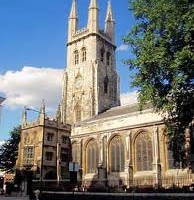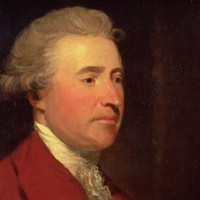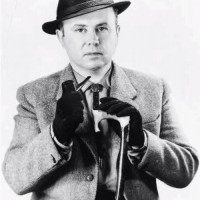Medieval vs. Modern, by Dr. Peter Mullen
Incidentally, when the BBC wants to refer to something as particularly nasty, why do they always have recourse to the adjective ‘medieval’? The Middle Ages gave us the cathedrals, Thomas Aquinas, Anselm, Dante, Gregorian plainchant, Perotin, Giotto, chivalry, courtly love and a Christian Europe. The wonderfully progressive modern period gave us two world wars, Hitler’s holocaust, Stalin’s slaughter of 20 million, Mao’s killing of 70 million, the hydrogen bomb, abortion as a means of contraception, the destruction of marriage, Tate Modern, Jacques Derrida and the EU.
Read the complete article in The Salisbury Review, Autumn 2013.
Edmund Burke: the greatest Whig, the first conservative , by Daniel Hannan
I still remember the shock I felt when I was about half way through Burke’s Reflections on the Revolution in France. I was spending an undergraduate summer meandering slowly from Chicago to New Orleans when, in the middle of a passage about something else, I came across a glancing reference to France’s “captive king”. Stunned, I put the paperback down and stared round-eyed at my fellow Greyhound passengers.
Until that moment, it had not properly hit me that the entire book, the most penetrating denunciation of revolutionary excess ever composed, had been written before the Terror started. As a piece of political prophecy, it stands unsurpassed.
Burke predicted the chaos, the repression, the arbitrary confiscations , the executions and even, with uncanny foresight, the Bonapartist dénouement:
In the weakness of one kind of authority, and in the fluctuation of all, the officers of an army will remain for some time mutinous and full of faction, until some popular general, who understands the art of conciliating the soldiery, and who possesses the true spirit of command, shall draw the eyes of all men upon himself. Armies will obey him on his personal account. The moment in which that event shall happen, the person who commands the army is master of your whole republic.
There are never any prizes in politics for being right too early. Burke stood apart, an ascetic soothsayer, a lonely vate, descrying a future invisible to his contemporaries. He was right about America, right about Ireland, right about India and, outstandingly, right about France. As is usually the way, his peers never properly forgave him.
We may honour Burke as the first and greatest of those politicians who put ideas before preferment: the patron saint of all the Enoch Powells, so to speak. For three decades, Burke was the most gifted and eloquent MP in the Commons; yet he spent less than two years in government – resigning his junior ministerial post, typically, on a point of fairly minor principle.
We might venerate him, too, as one of the finest orators and pamphleteers of any age. If you think it odd that, as a teenager, I was reading Burke for pleasure on a Greyhound bus, I can only assume that you haven’t come across his prose. He is one of that tiny number of writers, along with Macaulay and Orwell, whose style pulls you along pretty well regardless of what they are talking about.
All this, though, is to miss the real significance of Burke. He was the first modern conservative thinker, and one of the most penetrating and complete political philosophers to have written in English. It is this aspect of the great Irishman that captivates Jesse Norman, his brilliant biographer – and incidentally, the Conservative MP for Hereford.
Read the complete article in The Telegraph
Russell Kirk Defends Assassination with Natural Law Theory, by Bradley J. Birzer
Therefore a little knot of brave and conscientious men determined to save Germany and Europe by killing Hitler…
Read the complete article in The Imaginative Conservative


